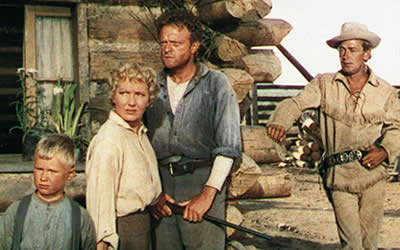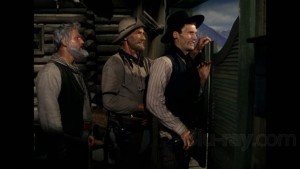
Note — This post is by Margarette Rogensues, a freshman in the Honors College at Oakland University double majoring in French and Spanish language translation. Over the next few months, students in my course, International Relations on Film, will be contributing posts to the blog reflecting on the movies we are watching in class and the ideas those films are helping us to think about. Margarette’s piece is presented here with editing to clarify some points, though the ideas are hers.
Since states became sovereign there has been a leveling of power across the globe. This, however, creates a type of anarchic relation among states.
In the study of international relations we see an international system characterized by anarchy, meaning states recognize no authority higher than themselves. This self-help system requires states to look out for their own interests, as there is no reason for other states to help unless it suits there own agenda or interests. Trust and morality are seldom to be trusted.
George Stevens’ 1953 movie, Shane, set in Wyoming in the years following the Civil War and passage of the Homestead Act, brilliantly uses common themes from classic western films to show how authority can be present in anarchy. The Homestead Act was meant to incentivize migration to the western frontier by providing 160 acres of land to settlers at a small fee. If they stayed for five years they gained ownership of the land.

This is where the conflict in the film begins, pitting ranchers, the Ryker brothers and their men, against a group of homesteaders. The film’s hero, Shane, played by Alan Ladd, rides up, six-shooter on his hip, and winds up a hired hand for one of the homesteaders.
Self-interest and self-help drive the action in Shane. This is seen in the Ryker brothers’ efforts to drive the homesteaders off and take the land for themselves. With no one to defend them, and “the law” more than 100 miles away, the homesteaders are forced to either stand their ground or quit the land. When the homesteaders decide to stay in their homes, the ranchers bring in a gunfighter, escalating the conflict.
Yet even under anarchy self-interest may have a broader meaning than we think. In the final showdown with Ryker and his hired gunman, Shane straps his own gun back on and seems to act against strict self-interest, risking his own life to help the homesteaders. But his self-interest here has grown to include not just himself, but the society of which he was a part.
So even though Shane doesn’t individually benefit from his actions — in fact he takes a bullet for his trouble — he is still acting in his own self-interest as expected in an anarchic system where nothing is guaranteed aside from one’s own actions.
At the same time, anarchy doesn’t necessarily mean a lack of authority in the system. Even in the movie’s fictional setting there are authorities, though not the law. The Rykers are the authority, granted not by right or consensus, but by virtue of their power, their ability to maintain and expand their own position even by use of brute force as necessary.
They are not the only authority in the movie, however. Joe Starrett and his wife Marian, the homesteaders for whom Shane works, each exercise a degree of authority. But theirs is authority more rooted in principle than power. Joe is seen as the leader of the homesteaders, trying to convince and coerce them to stay on their land. When he fails, Marian uses persuasion to win people’s compliance.
But power dominates. Marian’s words are unable to stop Joe from trying to go to town to confront the Rykers. It took Shane fighting him and knocking him out to stop him. Shane’s power gave him authority over Joe where Marian’s principled persuasion failed.
The movie is not only a classic of the western genre, but a vehicle to consider larger issues, such as the problems of anarchy and the sources of authority in such a setting.